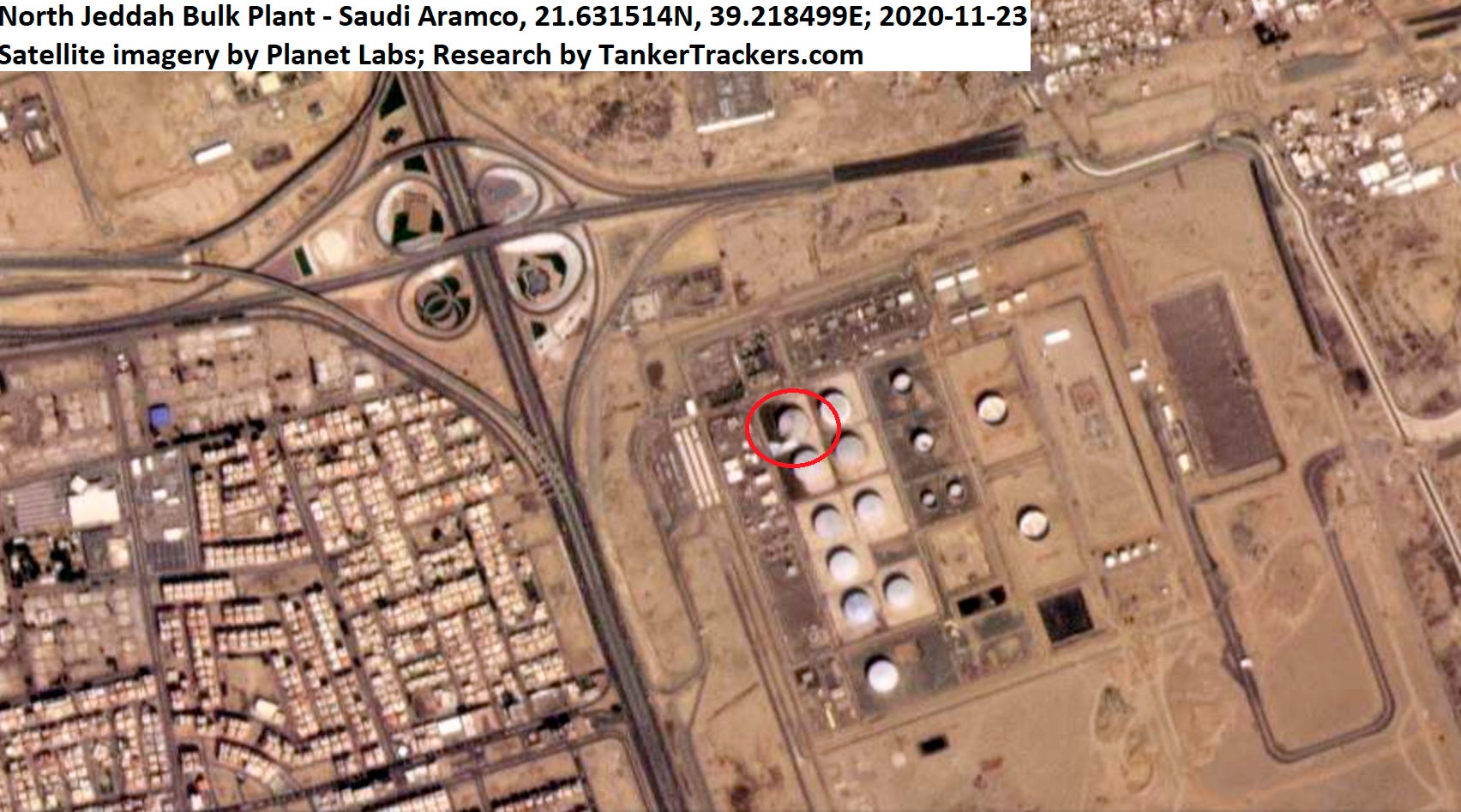Yemen rebels claim attack on Saudi oil facility in Jiddah
Yemen’s Houthi rebels say they struck a Saudi oil facility in the port city of Jiddah with a new cruise missile, just hours after the kingdom finished hosting its virtual Group of 20 leaders summit

Your support helps us to tell the story
From reproductive rights to climate change to Big Tech, The Independent is on the ground when the story is developing. Whether it's investigating the financials of Elon Musk's pro-Trump PAC or producing our latest documentary, 'The A Word', which shines a light on the American women fighting for reproductive rights, we know how important it is to parse out the facts from the messaging.
At such a critical moment in US history, we need reporters on the ground. Your donation allows us to keep sending journalists to speak to both sides of the story.
The Independent is trusted by Americans across the entire political spectrum. And unlike many other quality news outlets, we choose not to lock Americans out of our reporting and analysis with paywalls. We believe quality journalism should be available to everyone, paid for by those who can afford it.
Your support makes all the difference.Yemen s Houthi rebels said they struck a Saudi oil facility in the port city of Jiddah on Monday with a new cruise missile, just hours after the kingdom finished hosting its virtual Group of 20 leaders summit.
The kingdom did not immediately acknowledge any attack as videos on social media suggested a fire struck a Saudi Arabian Oil Co. facility in Jiddah before dawn. A later satellite photo also suggested a fire occurred.
Brig. Gen. Yehia Sarie, a Houthi military spokesman, tweeted that the rebels fired a new Quds-2 cruise missile at the facility. He posted a satellite image online that matched Aramco's North Jiddah Bulk Plant, where oil products are stored in tanks.
That facility is just southeast of Jiddah's King Abdulaziz International Airport, a major airfield that handles incoming Muslim pilgrims en route to nearby Mecca.
Online videos appeared to show a tank farm similar to the bulk plant on fire, with wailing sirens heard and police cars alongside a highway by the facility. Details of the videos posted predawn Monday matched the general layout of the bulk plant. However, passers-by could not see damage to the tank farm from the highway running beside the facility later Monday morning.
A satellite photo from Planet Labs Inc. later published by TankerTrackers.com appeared to show damage to one of the tanks at the bulk plant and what appeared to be fire-suppression foam on the ground near it.
The U.S. Consulate in Jiddah said it wasn't aware of any casualties from the claimed attack. It urged Americans to “review immediate precautions to take in the event of an attack and stay alert in case of additional future attacks.”
Saudi state-run media did not acknowledge the Houthi claim. Saudi Aramco, the kingdom's oil giant that now has a sliver of its worth traded publicly on the stock market, did not immediately respond to a request for comment. Its stock traded slightly up Monday on Riyadh's Tadawul stock exchange as crude oil prices remained steady above $40 a barrel.
The claimed attack comes just after a visit by outgoing U.S. Secretary of State Mike Pompeo to the kingdom to see Crown Prince Mohammed bin Salman , a meeting that reportedly included Israeli Prime Minister Benjamin Netanyahu. The kingdom also just hosted the annual G-20 summit, which concluded Sunday.
A Saudi-led coalition has been battling the Iranian-backed Houthis since March 2015, months after the rebels seized Yemen's capital, Sanaa. The war has ground into a stalemate since, with Saudi Arabia facing international criticism for its airstrikes killing civilians.
The Houthis have used Quds, or “Jerusalem," missiles to target Saudi Arabia in the past. The Quds-1 has a copy of a small, Czech-made TJ-100 jet engine, with a range of 700 kilometers (435 miles). United Nations experts have said they don't believe the missiles are built in Yemen and instead have been sold or traded to them in violation of an arms embargo.
Iran uses a copy of TJ-100 engines in its drone program. U.N. experts, Arab countries and the West say Iran supplies arms to the rebels, allegations denied by Tehran.
The Quds-1 was used in a missile-and-drone strike on the heart of the kingdom’s oil industry in 2019 that shook global energy markets. The U.S. believes Iran carried out that attack amid a series of escalating incidents last year between Tehran and Washington, something Tehran denies.
___
Associated Press writer Isabel DeBre in Dubai, United Arab Emirates, contributed to this report.